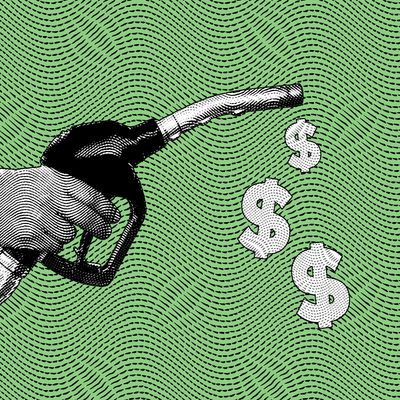
On Wedneday, President Joe Biden announced that the federal government would be selling another 15 million barrels of oil from the US strategic reserves — after pulling 180 million barrels out of it over the past six months, drawing it down to multi-decade lows. Biden has also called on oil companies to lower prices, and is mulling a ban on exports. All these moves designed to keep the price of gas from rising much more in the near future, when there just happens to be a major election. Like the hydrocarbon itself, the price of oil is volatile: the war in Ukraine has choked global supply, oil-producing countries have slashed production, and cold weather is already here. Drawing down the country’s petroleum reserves isn’t anybody’s idea of a long-term fix, but this latest round does appear to be having some kind of effect, since the average gallon of regular gas in the US costs about 8 cents less than it did last week, according to AAA. But the shrinking cost at the pump threatens to cloak bigger problems ahead, and those appear to be showing up in the skyrocketing cost of the fuel that plays a leading role in powering the overall economy: diesel.
If you want a peek at the future, look at how the price of New York Harbor diesel fuel is rising. At more than $200 a barrel, that fuel blend, the current standard, is more than double the price of regular gasoline – and that gap is a major reason why so many other goods are getting more expensive. “These numbers are incredibly high,” said Tom Kloza, global head of energy analysis at Oil Price Information Service. “It’s hard to find something that’s more insidious than high diesel prices, because the way that everything in the country really moves. Whether by rail, by boat, or by truck, it’s diesel-fired.” While it’s still about 50 cents a gallon lower than the all-time peak reached in June, it’s still about 50 percent more expensive than it was a year ago at this time.
The reasons behind this get directly to why there are no easy fixes for this kind of problem. As Javier Blas at Bloomberg points out, diesel stockpiles should be 30 percent higher than they are right now. The banning of Russian oil and gas from much of the Western world is a major reason for that drop, but the whiplash in demand following COVID lockdowns is also still affecting the global supply. The last time there was this little supply, there were about 3.5 billion fewer people on the planet, Kloza pointed out. That doesn’t even get to the vast expansion in infrastructure, and how much more fuel is needed today to send goods around the world in a vastly more globalized economy. Places like Latin America and Asia also depend on it more than the US does.
But the sting will be felt everywhere. It’s not just transportation that relies on diesel: 75 percent of all farm equipment relies on the fuel, meaning that the price of food is going to rise before it ever even gets on a truck.
And it’s not just diesel that’s rising. Kerosene, which is typically used to heat homes in poorer and rural communities in the Northeast, is nearing $7 a gallon — a significant expense for anyone who will need to buy one or two gallons per hour to heat a house in the winter. Jet fuel is about 23 percent more expensive than it was a month ago. With Europe still weening itself off Russian energy, extra demand from the continent could push prices up even higher this winter and into next year.
Kloza has been skeptical of Biden’s gas policies — but made it clear that the oil industry hasn’t exactly been constructive in keeping the price of oil down. He predicts that the next real crisis in oil prices is going to come next year, as Putin and Mohammed bin Salman, the de facto head of Saudi Arabia, lower production, stoking further upward pressure on the price of everything. “We’ve got tons of people who are siding with OPEC+ in criticizing the Biden administration,” he said. “But how can you root for MBS and Vladimir Putin versus the United States in this battle to mitigate high prices?”






























